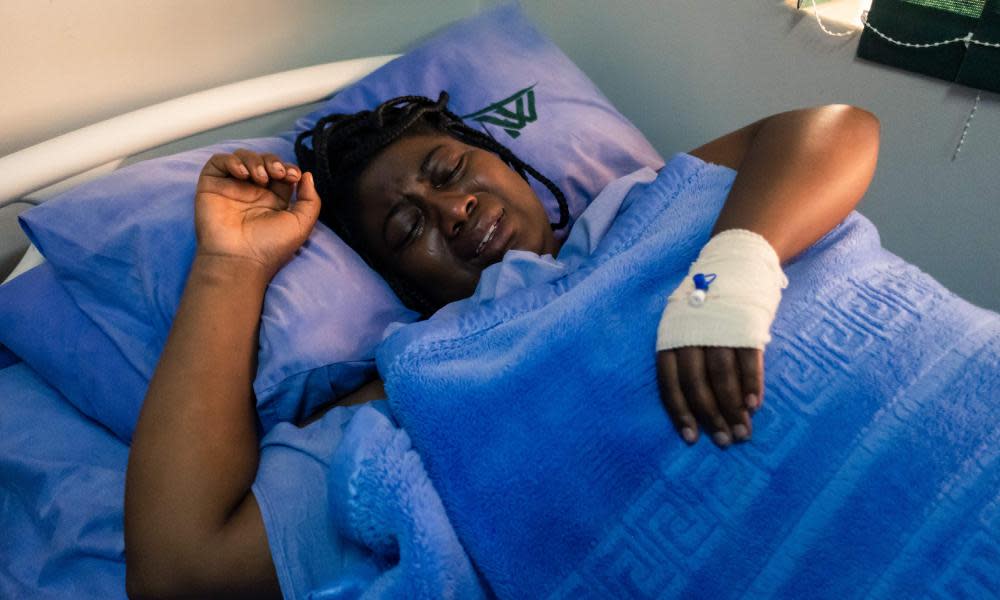Zimbabwe accuses MDC activists of made up state torture claims

Zimbabwe’s government has accused two opposition activists and an MP who described torture, humiliation and repeated sexual assaults after being abducted by suspected state security services of inventing the entire episode.
The three women, all leaders of the Movement for Democratic Change’s youth section, were arrested at a roadblock guarded by police and soldiers last month at a protest in Harare against the state’s failure to provide for the poor during the country’s Covid-19 lockdown last month.
They then disappeared until they were found on a roadside 60 miles away from the capital two days later, badly injured and traumatised.
Witnesses said masked assailants had bundled the three women into an unmarked Toyota minivan and driven them away.
The women later described repeated beatings, humiliation and sexual assault at the hands of unidentified men who threatened them with further attacks if they continued their political activities. Police have since charged them with participation in an illegal demonstration.
Kazembe Kazembe, Zimbabwe’s home affairs minister, said on Thursday that the government “does not permit any of its institutions and agencies to use torture, forced disappearance or abductions”.
According to the Herald, a state-owned newspaper, Kazembe described such methods as alien to Zimbabwe, suggesting they had been imported “from foreign environments for the benefit of regime change sponsors”.
Kazembe also said examination by government doctors had not shown any injuries that matched the three women’s accounts and alleged their statements showed signs of coaching.
Suspected state security services have abducted dozens of pro-democracy campaigners, trade unionists and opposition officials in recent years. Most have been released after several hours, though many have been badly beaten, stripped, threatened or otherwise mistreated.
Authorities in Zimbabwe frequently suggest such incidents have been staged to discredit the government, often with the alleged involvement of some outside power.
Emmerson Mnangagwa, who took power as president after the fall of Robert Mugabe in 2017, was last year accused by Amnesty International of a ruthless systematic crackdown on human rights.
Allegations that unidentified third parties were undermining authorities were a staple under Mugabe, who ruled for 37 years and died last year in a clinic in Singapore.
The Zimbabwe human rights commission said its preliminary investigation had established serious abuses of the women. One of the three, Cecilia Chimbiri, 33, told the Guardian they had been taken to a remote, wooded area where they were beaten, stripped naked, sexually assaulted with firearms and forced to drink each other’s urine.
“They beat me on my back, all over the body using sticks. They used a gun to beat us, then molested me,” Chimbiri said.
“They pushed us out of the truck on to the road. They left us there. They said ‘we will be watching you … What is so special about you that you want to turn against the government?’”
Another of the women, Joana Mamombe, one of Zimbabwe’s youngest MPs, described being forced to march and sing protest songs.
“They were pouring water on us. They beat us if we stopped. They made us drink each other’s urine. They were fondling Cecilia,” Mamombe, 26, told reporters at a private Harare hospital
Public discontent has grown with Mnangagwa, who has struggled to fulfil promises of economic prosperity and greater political freedom. The health system has largely collapsed as the country struggles with its worst economic crisis in more than a decade.
Nelson Chamisa, the MDC leader, continues to dispute his narrow loss to Mnangagwa in the 2018 elections, but has struggled to mobilise mass support.


